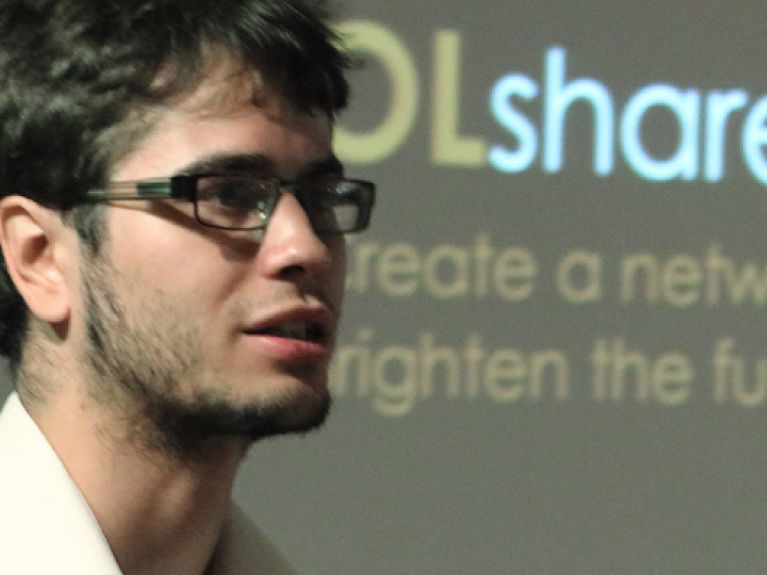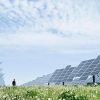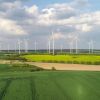An idea for Bangladesh
Drivers of the energy transition: Sebastian Groh has developed a sustainable electricity supply model for households in Bangladesh.

After travelling widely around the world, Sebastian Groh has now settled in Bangladesh. That is where he founded ME SOLshare Ltd. in 2014, an enterprise that promotes a unique solar energy-sharing model. It would enable the 85% of the Bangladeshi population living in rural areas not only to generate electricity cheaply, but also to share it or sell it to others. The idea has attracted a lot of attention because some 70 million people in Bangladesh do not have access to electricity. SOLshare won a United Nations Momentum for Change Award in 2016 for its system of micro-grids that bring lighting and income to rural villages.
The economics graduate from Aschaffenburg initially pursued a career as an investment banker at Commerzbank, but a lecture on the subject of “Business with the Poor” made him rethink his future. Instead of a change to the Deutsche Bank, he went to Microenergy International in Berlin, where he discovered the link between microfinance and renewable energies. This gave him a new mission in life: following study visits to India and El Salvador, he first went to Harvard and then as a PhD student to the renowned Stanford University in California, where he found a supervisor who shared his vision. He eventually completed his doctorate in Bangladesh
Connecting 20,000 individual solar systems
“In Bangladesh,” says Groh, “a quarter of the rural population already produce their electricity with solar panels.” His idea was to connect these many individual solar systems together to allow people to exchange electricity depending on how much or how little electricity they need from their own system. This also enables people who do not have their own solar equipment to connect to the network. Solar household systems in Bangladesh, explains Groh, are usually set up in such a way that people lose 30% of the electricity generated. “By networking the systems together, we can use more of this energy.” Everyone who is connected to the system has a bi-directional meter that calculates the user’s own net consumption. If you feed in more electricity than you consume, the profit is paid into your mobile phone in taka, the local currency, in real time. This is a widely used payment system in Bangladesh. “People can then use it to pay for their rice and immediately see the financial advantages of renewable energy production. By Bangladeshi standards, the income is considerable – and people don’t even have to do any work for it,” says Groh.
His company began by connecting eight houses in November 2015. In all, he and his employees now have a total of 250 customers jointly with another project. ME SOLshare aims to network 20,000 local solar systems by the year 2030. Over one million people in Bangladesh could benefit from this, with many of them being connected to an electricity grid for the first time.

